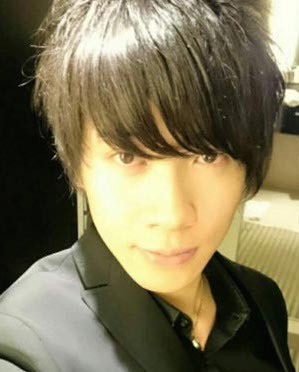
1) Why did you choose Anaheim University?
After thorough research, my decision for Anaheim University was based on three major reasons: First: flexibility. As I am permanently employed and studying for a second Masters degree simultaneously, my place of work and time schedule were subject to constant changes. If it was not for a fully online-based program, I would not have been able to juggle three "full-time jobs." Second: internationality. A German degree in Humanities alone is insufficient to cope with the increasing importance of globalization and transculturalism. As a nationally accredited and English-speaking university with international orientation, I felt that Anaheim University fully met the requirements.
Last: uniqueness. With particular attention to the International MBA program, Anaheim University is practically the only online university in the United States which combines business knowledge with strong expertise in Asian studies (special thanks to Dr. Callahan!), which is among my main research interests.
2) Can you tell us briefly about your career?
At the age of 16, I underwent a three-year apprenticeship as an IT Management Assistant in the financial sector. Afterwards, I finished my compulsory civilian service for the Red Cross, thus switching over to the tertiary sector. Upon completion, I attended university to study Chinese and Japanese Studies (and later the International MBA), while at the same time co-managing a boutique hotel and working for NHK WORLD. Now I strive to both do a Doctoral degree in Asian Studies and apply for a management job position.
3) Why did you choose to earn an MBA?
If it was not for earning a living, I would be perfectly satisfied with studying humanities only and fully dedicating myself to academic research. The MBA was meant to function as my alternative key qualification to enter the free market, in case I failed the academic path. However, in the course of tackling the MBA program, I realized that earning a MBA degree not only increases your job chances and round out the overall picture, you also acquire analytical and organizational skills that are useful for interdisciplinary approaches. Whether as a complement or a stand-alone degree, there are only advantages one can derive from earning an MBA.
4) How do you feel completing the program successfully?
Nothing in particular. Just moving on to the next chapter in my life.
5) What did you like best about the program?
Honestly, Student Services was the best! Extremely helpful, always friendly, casual communication, fast replies and great dedication (special thanks to Elizabeth and Shizuka).
6) What is your favorite memory from the program?
Whenever I received an enrollment key for accessing a new course, I burst with curiosity about the assignments and tasks we had to do over the upcoming six weeks. Upon taking a quick look, I immediately checked the new student list to see with whom I would study together. I personally enjoyed these moments most.
7) How was the experience studying online?
As I was also studying at a traditional university, I see great differences compared to studying online. The most outstanding difference in my opinion (taking traditional German universities as a base for comparison) is that you have a strict point system. Thus, you will be forced to actively participate, engage in discussions, and meet deadlines (with exceptions being granted if there is a good reason for it) on a weekly basis. Most students in an "offline seminar" usually do not talk because they are either shy, afraid of saying something wrong, or have language problems. However, these types of students would contribute on an online platform and you can see their potential being drawn out. Naturally, most feel more comfortable with writing instead of speaking. You have time to think about what you want to say. There is no pressure at all. For further discussions, webcam seminars are held twice per course, where you can exchange your ideas and further elaborate on your thoughts with the professor and the group. If that is still not enough, you just arrange private sessions with your classmates which I did a lot. All in all, studying online is way too underrated. It can be efficient and productive in so many ways that traditional universities cannot keep up with. It was definitely worth the experience.
8) How did you balance the time required to study while working full-time?
It is all about setting priorities. Anything can be overcome with self-discipline, perseverance, and effort.
9) Did you feel you were part of a learning community?
Yes, advancing towards the completion of a course alongside my - best described with the Japanese term - "nakama" ("comrades" with a slightly deeper meaning) was the greatest feeling. Although everyone is scattered around the world, you feel connected with them. You give and receive support. You never have the feeling of being a lone wolf.
10) What was the most unusual location you joined an online class or discussion forum from?
A Sushi bar in Shinjuku.
11) What would you say to someone who is hesitant about studying online?
Give it a chance.
12) Do you feel the MBA will help to develop your career?
Not only career, but life experience as well.
13) What advice would you offer to the Anaheim University incoming students?
Don't underestimate the workload. The degree has to be earned, in the literal sense of the word.
